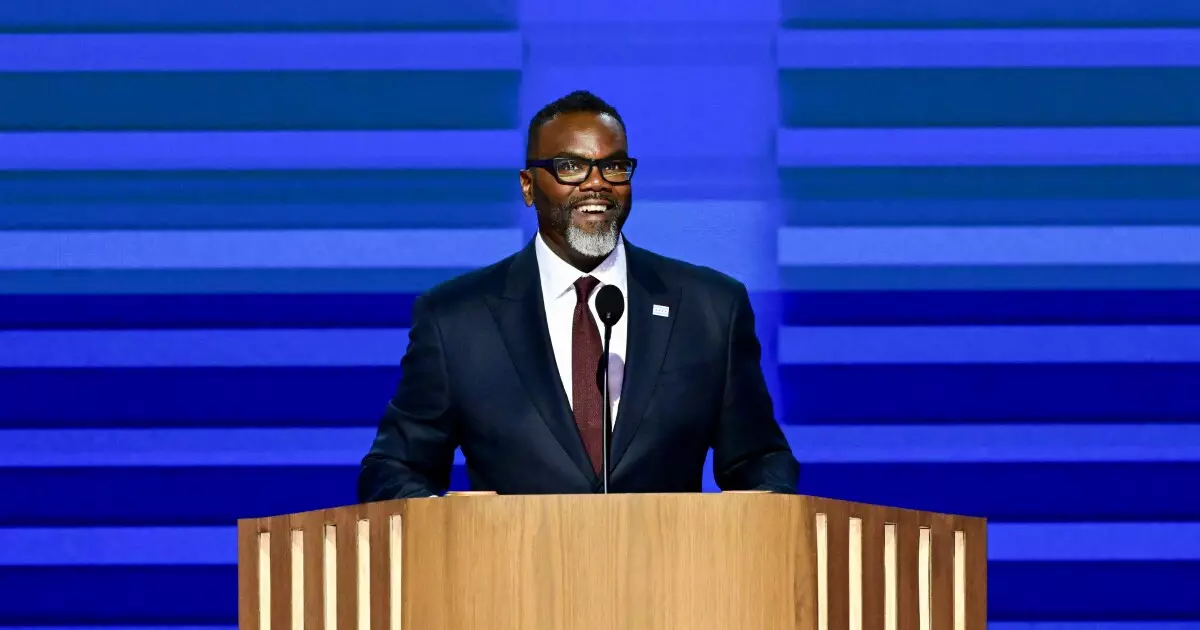Chicago finds itself at a critical juncture in its fiscal management as it grapples with significant budgetary shortfalls that have raised alarms among financial analysts and rating agencies. Kroll Bond Rating Agency (KBRA) has recently placed the city’s general obligation bond rating on a “Watch Downgrade,” highlighting a growing concern regarding the city’s financial stability.
Projected deficits amounting to $982.4 million in the corporate fund for the fiscal year 2025 serve as a stark backdrop against which the City Council is deliberating a proposed $300 million property tax increase, a substantial measure included in Mayor Brandon Johnson’s budget plan. This move reflects the city’s urgent need to address financial gaps exacerbated by a reduction in state and federal funding.
The implications of this financial turbulence extend beyond the immediate need for revenue; they paint a broader picture of Chicago’s dependency on one-time funding solutions, which deliberately sidesteps the underlying structural issues plaguing its budget.
KBRA’s decision to put Chicago’s bond rating on watch is underscored by several key factors. One glaring issue is the reliance on non-recurring revenue sources that may bolster short-term budgets but offer little in terms of sustainable financial health. Linda Vanderperre, a senior director in KBRA’s public finance ratings group, indicated that the agency is concerned about the potential crowding out of beneficial corporate fund spending due to escalating pension payment responsibilities.
The framework for the 2025 budget as proposed attempts a mix of 80% structural fixes and 20% one-time sources; however, this ratio raises eyebrows regarding its long-term viability. With such heavy reliance on non-recurring funds, the city risks creating a financial environment ripe for instability. Despite acknowledgment of Chicago’s robust economic base, rating agencies are warning that failure to adhere to established financial policies could lead to sharp consequences.
The recent discussions surrounding the property tax increase have also taken on a contentious tone. Initially presented as a necessary solution to combat the budget shortfall, the proposal faced backlash for infringing on promises made during the mayor’s campaign. Following calls from 29 of the 50 alderpeople for further scrutiny regarding the tax hike, it has become clear that consensus is needed to navigate this divisive issue.
While some analysts view the proposed tax as a positive step toward generating continuous revenue, others, including reports from the Civic Federation of Chicago, caution against relying on such increases as a primary strategy for fiscal recovery. Moreover, the claim that the tax hike would significantly be toned down raises questions about what sustainable alternative solutions may be available to balance the budget in alignment with the statutory requirements by the end of the year.
As Chicago wrestles with the dynamics of its fiscal environment, it becomes increasingly evident that a long-term strategy for financial stability is non-negotiable. KBRA’s cautionary tone alerts stakeholders to the necessity of finding reliable revenue streams that align with the growing demands of a city with significant pension and debt obligations. Continuing down the path of one-time revenue solutions merely perpetuates a cycle of structural financial imbalances that could jeopardize the future stability of public services.
The city’s rating, currently sitting at an A with a notable stable outlook from Fitch and similar ratings from Moody’s and S&P, may be under siege if there is no concerted effort to address the looming deficits effectively. KBRA’s warning regarding the need for the city to adhere to its budget stabilization fund policies—and maintaining compliance with pension funding—highlights the crucial aspects that cannot be overlooked in future planning.
Chicago’s financial horizon is fraught with challenges that demand immediate attention and comprehensive strategies for resolution. As the City Council prepares to vote on pivotal measures like the property tax hike and the ongoing debt refinancing discussions, the rememberance of past failures must guide their current decisions.
The city’s ability to cultivate a balanced budget not only relies on immediate fiscal strategies, such as the proposed tax increase, but also on long-term commitments to financial discipline and strategic revenue planning. Without a cohesive, sustainable approach, Chicago risks further jeopardizing its economic vitality and the well-being of its residents. As the financial world watches closely, the decisions made in the coming weeks will reverberate for years to come, underscoring the need for transparency, prudence, and cooperation in leading the city toward a stable and prosperous future.

